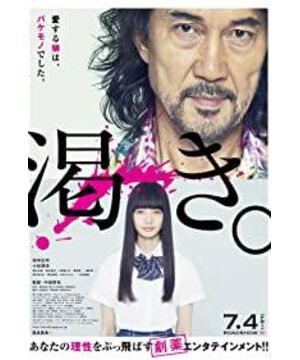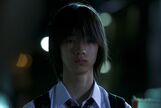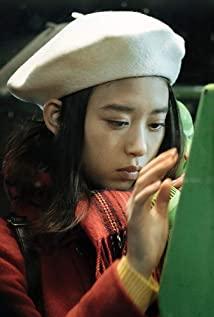From "Confession" to "渇き. ", Tetsuya Nakashima is extremely pessimistic about human nature, and he should be able to reach a perfect consensus with Xunzi who advocates "evil nature". Especially for the next generation, it has almost reached the point of giving up and hating. In "Confession", the group of high school students is still a collective consciousness, but in "渇き." ", the heroine and the entire generation are indifferent to human nature and treat life like a mustard, as if the future of all mankind has been thrown into an endless hell.
From "The Story of My Wife" to "渇き. ", Tetsuya Nakashima's interpretation of the darkness of human nature is like an elevator descending at a high speed until it reaches the bottom. In "渇き. In ", almost all the characters are ugly: parents and teachers are irresponsible, the police are hanging around; young people are even more passive and depraved, those who are dominated want to die, and those who bully others have no moral values. The previous generation at least still has the ability to regret and introspect, but the next generation is completely paralyzed. This tendency has almost become a belief, permeating every inch of film throughout the film.
But the paradox is that Tetsuya Nakashima not only hates the next generation, but also knows how to use novel film language to attract the attention of young audiences. He has always liked to smash and smash simple narratives into complex ones, and then choose short, cumbersome editing, and rich musical elements to form a large number of collage-style audio-visual forms. This is sometimes clever and tricky, and sometimes it becomes a barrier that constantly disrupts the rhythm of the drama.
"渇き. "The various violence and visual design in "In fact, most of them are fancy show-offs. The most fascinating part of the story itself is the return to the father's character finally "digging" into that ambiguous area, even if it is family affection, the so-called "love". "And "desire", there is also a blurry and indistinguishable distinction.
Compared with the endless slow-motion scenes of "Confession", Tetsuya Nakashima is in "渇き". ", was replaced by a close-up to interpret the character's oppressive state inside and out. Therefore, the space for actors to express is very limited. Probably only Koji Yakusho can "steal" some delicate performance space in these close-up close-ups to interpret the complexity of the father's role. If "Confession" is to beautify all ugliness in form, then "渇き. " is like an intensified smear disorder, without boundaries, but also provoking the limit of the audience
. (










